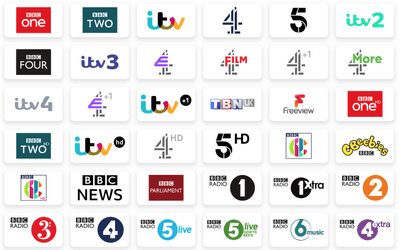Millions of households face higher bills every year courtesy of annual broadband price increases by the UK’s major providers.
Most providers make yearly inflation-linked price rises at the end of every March. These will be written into contracts and customers will have to consent to these forthcoming unknown price rises when signing up.
Which means if you sign up to an 18 or 24 month contract, don’t just pay attention to the cost that is being advertised, look ahead to what is coming. You could easily be looking at an additional £130 over the course of your contract thanks to unpredictable inflation-linked mid-contract price rises.
Why do providers put their prices up?
These hikes are based on the consumer prices index (CPI) rate of inflation, which gets published every January. Providers must give their customers a reasonable warning, which is why they normally come into effect from the start of spring.
Is the price increase the same for all providers?
No. On top of CPI, providers can also add an extra charge which might be anywhere between 2-4% extra to ‘cover their overall business expenses’.
Which providers increased the most in 2023?
With a whopping CPI of 10.5% in January 2023, plus up to an extra 3.9% by some providers, hikes this year have been bigger than ever before.

Are there any providers who don’t increase their price mid-contract?
Yes, some of the smaller companies commit to a fixed price in a bid to attract competition. In 2023 these following providers did not increase costs:
YouFibre
Hyperoptic
Italk
YouFibre
TalkTalk (full fibre deals or for those who paid for a ‘Fixed Price Plus’)
Connect Fibre
Cuckoo Broadband
Fibrus
Zen
Onestream
Can I leave mid-contract if prices go up?
Unfortunately with most monthly contracts you'll have accepted terms and conditions which include the clause that the suppliers can increase your monthly bill in accordance with inflation each year. So, if you want to exit, you'll probably have to pay a penalty.
These fees can be steep. For example, if you sign up to an 18 month contract and want to cancel in the second month, you might have to pay 16 months’ worth of fees.
The rules change slightly if you’re still in the minimum term of your broadband contract. If a provider increases its prices, and you didn’t know about this increase before (check it hasn’t been written into the terms and conditions of your contract), you can then cancel and switch to any other provider without an exit fee as long as you do so within 30 days of being notified about the rise.
Sky broadband customers
Unlike the majority of big providers, Sky doesn’t link its price rises to inflation. Last year’s rise of 8% was considerably lower than its competitors. It also allowed its customers to cancel their broadband contract for free if they weren’t happy with the increase, as long as they did it within 30 days from the date they were told.
Now Broadband customers
Owned by Sky, Now Broadband also does not factor inflation-based price rises into their contracts. And exactly the same applies, you are free to exit your contract without a penalty, as long as you do so within 30 days of being informed of the increase.
Virgin Media customers
Virgin Media also give their customers the chance to switch mid-contract without a fee within a 30-day window of being notified about price hikes.
What if I’m out of contract?
If you’re not within the minimum term of your broadband contract, you’re free to leave without incurring a penalty fee.
Check out our latest broadband deals if you’re looking to switch.
**How much will the mid-contract price be for 2024?**
Consumer champion Which? have used figures for a survey of over 3,000 broadband customers and analysis of Bank of England inflation forecasts to predict the forthcoming increase and say:
“Providers that base their price rise on CPI are likely to raise prices by more than 8% in April 2024. For many this will come on the back of price rises of over 14% earlier this year.
Virgin Media will be using inflation-based rises for the first time, but its customers are likely to see the largest jump in costs – its customers could see hikes of over 10% thanks to its RPI-based price rises”.
What we are doing to help consumers
It’s important to us at Fibre Compare that we make customers aware of these price rises and take them into consideration when choosing their deal.
Geoff Pestell, CEO of Fibre Compare, says:
“Annual CPI-linked price rises are not new to our industry, but with inflation at such a high this is crippling for customers already struggling with the cost of living. An extra £3-5 per month on the average customer bill can have a significant impact and customers are just looking for certainty for their monthly budget.
Internet service providers tell us that the price increases are warranted as their own operating costs have gone up due to inflation remaining high, and to ensure they can continue to offer high-quality services, support and invest in their networks, they pass this cost on. Thankfully the rate of inflation is starting to fall but the next price increases will be announced on January 24.
From December 23, Fibre Compare will be adding prominent information to our results tables to highlight which broadband packages come with contracts where a mid-contract price rise is included.
It’s also worth remembering that millions of broadband customers are out of contract with their existing service provider. At Fibre Compare we recommend that you check when your broadband contract ends to see if you can switch and save.”
What regulators say
Many groups have criticised these mid-contract price rises. Independent regulator of the UK's communications sector, Ofcom, has launched a review to examine whether inflation-linked, mid-contract broadband price increases give phone and broadband customers sufficient certainty and clarity about what they can expect to pay.
Preliminary research has found that around a third of mobile and broadband customers do not know whether their provider can increase their price. And among those who do know, around half do not know how this would be calculated. And nearly half of all customers do not know what CPI and RPI measure.
Ofcom’s review will examine these issues in detail to see whether tougher protections are needed.
Cristina Luna-Esteban, Ofcom’s Director of Telecoms Consumer Protection, says:
"Customers need certainty and clarity about what they will pay over the course of their contract. But inflation-linked price rises can be unclear and unpredictable. So we’re concerned that providers are making it difficult for customers to know what to expect.
We’re taking a thorough look at these types of contract terms, to fully understand the extent to which customers truly know what they’re signing up to, and whether tougher protections are needed.
In the meantime, there are some simple things many people could do today to cut their bills. Millions of customers are either out of contract or with a provider that lets them walk away if prices go up. So we’re urging everyone to check their account and see what their options are."





